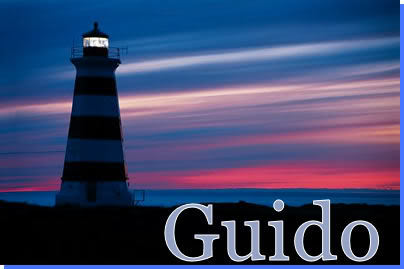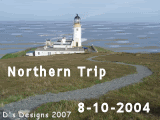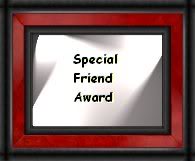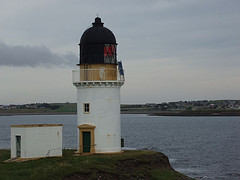Was asked to clarify the situation with the three above mentioned entities, so will oblige.
Scotland is part of the United Kingdom. Formally speaking, the name runs "the United Kingdom of Great Britain and Northern Ireland". Other constituent parts of Great Britain are Wales and England. For now, I'll focus on Scotland.
For several hundred years, Scotland was an independent nation, with its own monarchy and government. In 1707, after a particularly disastrous effort by Scotland at establishing a colony in the Americas, a move was initiated to merge England and Scotland into one nation. This was rubber stamped by the establishment, but not everybody agreed.
The Jacobite rebellions of 1715 and 1745 tried to reestablish the Scottish monarchy, but as we all know, they were an unmitigated disaster. The Old Pretender didn't make it in 1715, and Bonny Prince Charlie, the Young Pretender - well, don't start me off on him. He got trounced in 1746 at the Battle of Culloden, and only escaped by the skin of his teeth.
Following the 1745, the English set about pacifying the Highlands. Mind you, in spite of all the romanticised stories, the 1745 uprising was far from universally supported. Many clan chiefs saw the trouble it could and (eventually) would cause. Pacifying the Highlands was basically an exercise in ethnic cleansing avant-la-lettre. It would carry on for nearly 150 years.
Ethnic cleansing in the 18th and 19th century meant burning people's roofs over their heads and telling them to get on that ship in the bay which would take them to a new life in Australia or the Americas. More often than not, the ships would founder on the way there. After civil unrest in Great Bernera (Lewis) in 1874 and the Braes area of Skye in the 1880, the Napier commission came to northern Scotland to hear of conditions on the ground for itself. It amassed 13,000 pages of evidence and introduced legislation, which gave cottars and crofters security of tenure, making it much more difficult to evict them. Bearing in mind that many landlords were lowland Scots or English, there was a fair degree of bitterness.
In the 20th century, the Scottish National Party was established, which has as its declared aim to regain independence for Scotland. By 1997, the Labour administration in London agreed to devolve certain powers to a Scottish parliament in Edinburgh and a Scottish Executive [government] was set up. It could deal with matters of law and order, health, transport etc. So far, it does not have powers to raise taxes. Defense is also not devolved. The first two sessions of the Scottish Parliament, 1999 to 2003 and 2003 to 2007, gave the Labour Party a majority. Elections in May 2007 turned the tables.
The Scottish National Party became the largest party in the Scottish Parliament by 1 seat. Its leader, Alex Salmond, is now First Minister, and in the slightly awkward position of being MP and MSP [Member of Scottish Parliament] at the same time. The SNP came to power due to dissatisfaction with Labour over the war in Iraq and as a result of a botched election. Poorly designed ballot papers and a poorly executed election process left 100,000 people disenfranchised; on average, 10% of ballot papers were deemed spoiled, although more often than not, this was judged only on the say so of a machine.
The SNP has set the wheels in motion towards an increased degree of devolution. It still aims for independence for Scotland, but being in a minority administration, a ballot on full independence will be blocked by other parties.
Full independence for Scotland will not work, in my opinion. The economy here is not sufficiently strong or diverse to cope with that. At present, the North Sea and East Atlantic oil industry is a central pillar of the economy, but whether the central UK government is prepared to relinquish this vast source of income is at best doubtful. I also feel that an all out campaign for independence would stir up a lot of mutual resentment and antagonism. Rather than doing a Kosovo, Scotland could and should be given greater devolved power, and develop a mature relationship with its southern brother.
Tuesday, 19 February 2008
Subscribe to:
Post Comments (Atom)












I agree with you on everything that you mentioned in your last paragraph Guido.
ReplyDeleteJeanie
Thanks forthis entry. I found it very informative and am looking forward to the next one. Have a great day. Dawn
ReplyDeleteVery interesting, thank you for explaining this. I learned more reading your entry than I recall learning in our studies in High School.
ReplyDeleteLisa
Thank you for sharing...that was very interesting and I learned a great deal about something I didn't have a clue on. I love to learn new things...and as they say you learn something new everyday...thanks to you...I've learned this today...June:)
ReplyDeletevery interesting entry and very well written guido enjoyed it immensely take care mort
ReplyDeleteGreat entry. I am sure there are many folks who read your journal Guedio that have no knowledge of Scottish/English affairs. I agree with your last paragraph though. I don't think Independance would ever work and I believe that the majority of Scottish voters would be against it anyway...Sybil x
ReplyDeleteI agree also Guido, full independence doesn`t sound as though it would work though I`m no expert on Scottish politics. I do think that it might cause unnecessary resentment as you say.
ReplyDeleteLove Sandra xx
Pharm, but that history was this interesting when i was at school. I now have a better idea of what the Scottish issue is about. thank you oxo
ReplyDeleteVery informative entry.
ReplyDeleteLori